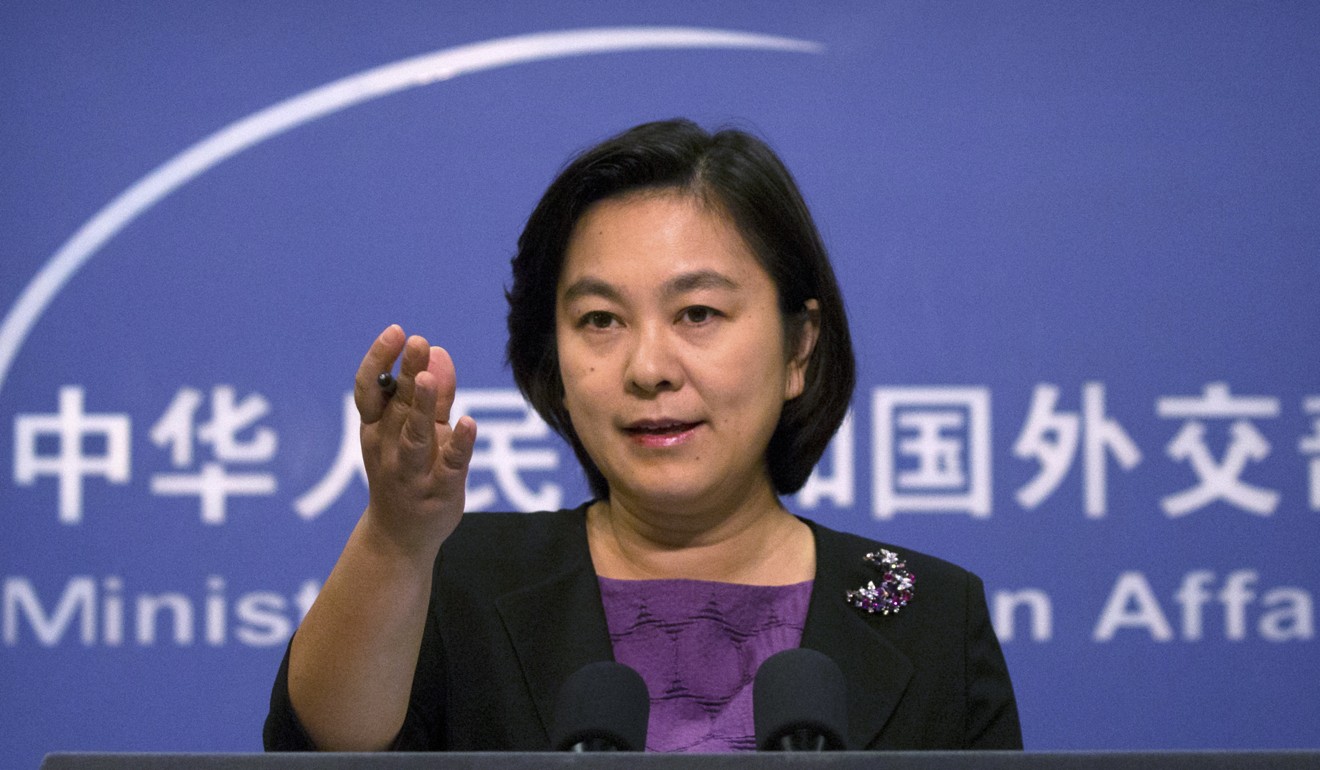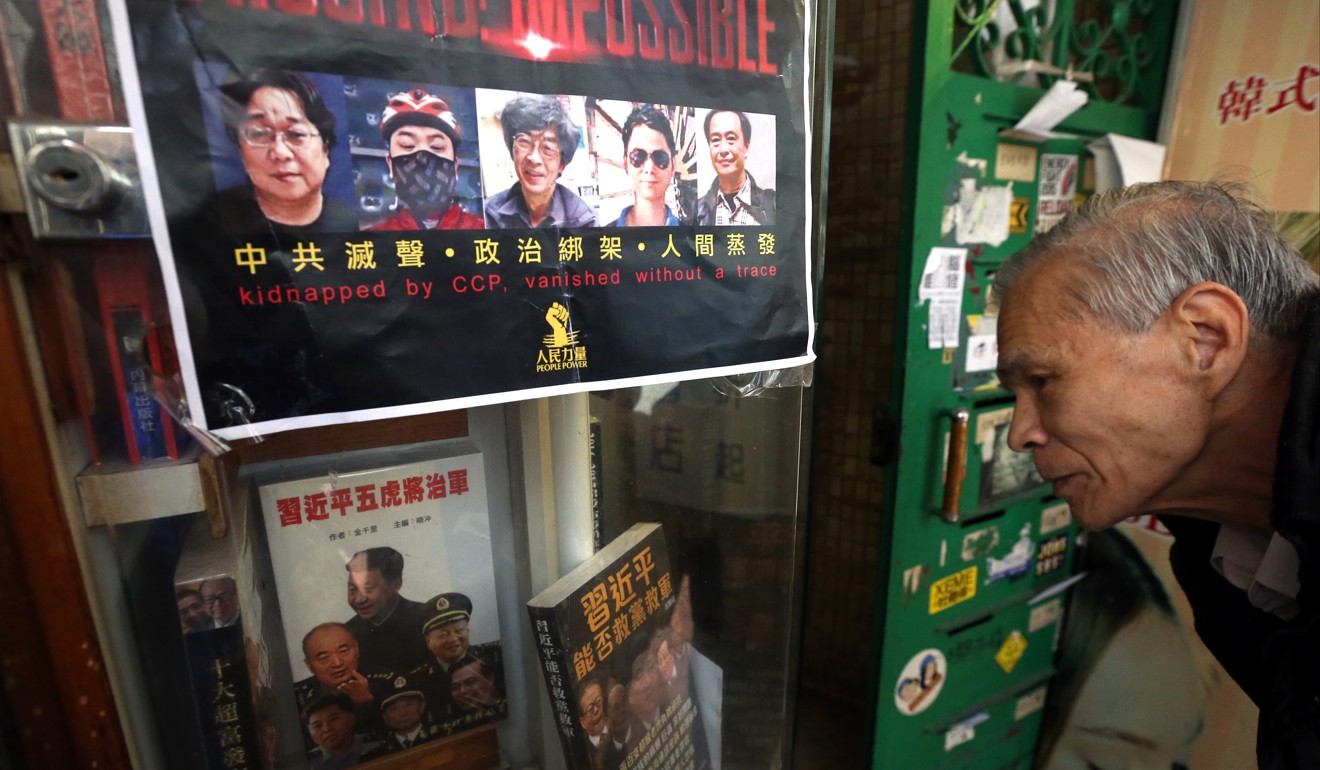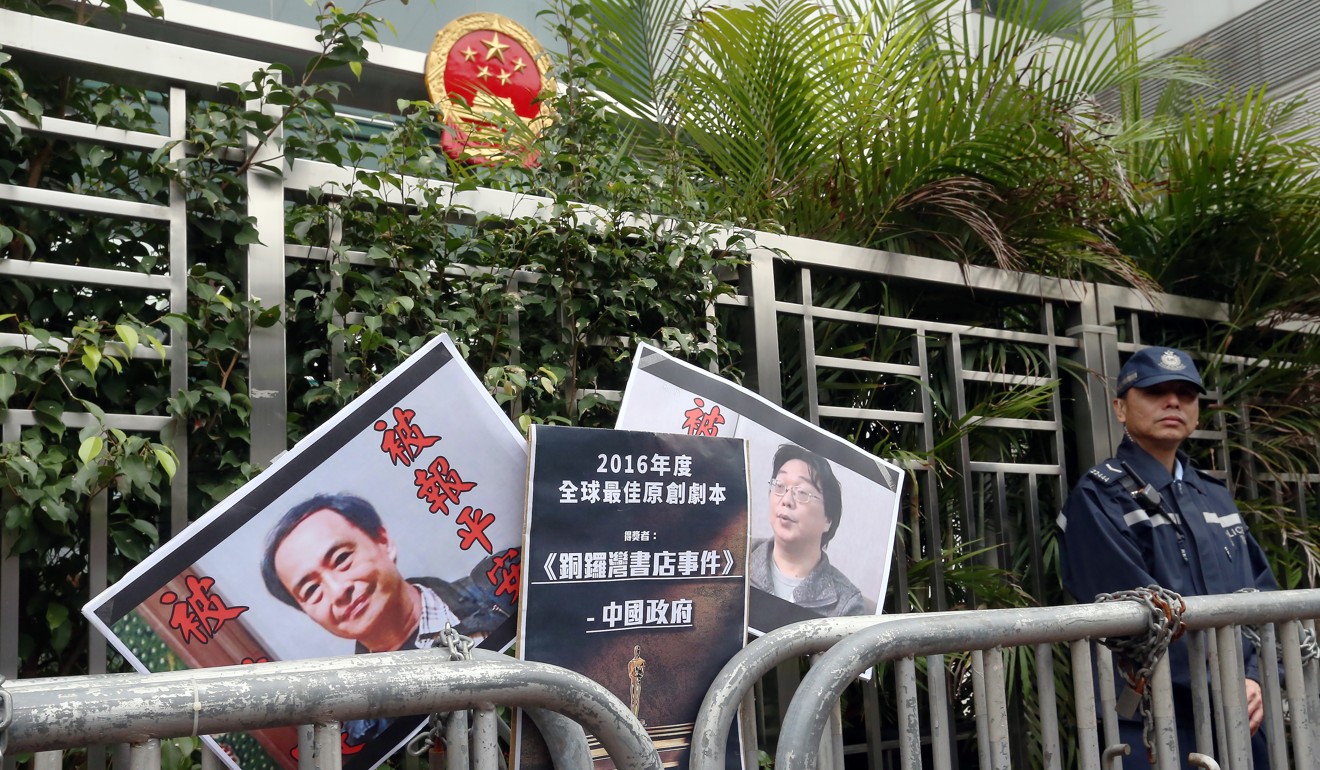
Update | Sweden hits back at China over snatching of bookseller Gui Minhai, embraces right to support its ailing citizen
Swedish foreign minister, dismissing insinuation of breach of law, accuses Beijing of ignoring ‘basic international rules’
Sweden’s foreign minister has hit back at China, saying the Scandinavian nation has a right to support its citizen and former Hong Kong bookseller Gui Minhai who was snatched from a Beijing-bound train under the eyes of two Swedish diplomatic staff.
In a strongly worded statement, Margot Wallström said Gui “was at the time of his arrest in the company of diplomatic staff, who were providing consular help to a Swedish citizen in need of medical care.
“This was perfectly in line with basic international rules giving us the right to provide our citizens with consular support.”
Sweden has taken a “very serious view” of Gui’s arrest, the statement said.
Gui, one of five people associated with a bookshop that had released books critical of Beijing in 2015, reportedly had shown symptoms of amyotrophic lateral sclerosis, which attacks the brain and spinal cord.
He was taken away by mainland Chinese authorities in front of the Swedish diplomats while riding a train back to Beijing for health checks, his daughter told the South China Morning Post.

Wallström’s statement – issued about 11.30pm on Tuesday, Hong Kong time (4.30pm on Tuesday, Stockholm time) came after China’s foreign ministry spokeswoman Hua Chunying had suggested that Swedish diplomats had breached international law in Gui’s case.
When asked whether Gui had violated any law in China or whether he was allowed access to Swedish embassy officials, Hua had said: “China has always provided convenience and facilitation to officials at foreign embassies or consulates in accordance with international laws, including the Vienna Convention on Diplomatic Relations, and Chinese law.”
“At the same time, any foreigners in China, including officials at the foreign embassies or consulates in China, should not violate international law or Chinese law.”
Gui was born in mainland China, but has since become a naturalised Swedish citizen. The Hong Kong publishing house he formerly ran had specialised in salacious gossip about China’s leadership.
He and four associates began to go missing one at a time starting in 2015.
Gui was in Thailand when he disappeared for the first time. His associates vanished later in mainland China and Hong Kong, sparking fears that they had been kidnapped by Chinese agents.

They later resurfaced in custody across the border, saying they went to the mainland voluntarily.
Gui had been released from prison in October on a drink-driving charge.
Gui’s friends said he had been released on condition that he not leave the city limits of Ningbo, a city in Zhejiang province not far from Shanghai.
Wallström said Chinese authorities had reassured the Swedish government that Gui had been free since his traffic-related offence and that Swedish officials could have “any contact we wish with our fellow citizen”.
“We expect the immediate release of our fellow citizen, and that he be given the opportunity to meet Swedish diplomatic and medical staff,” the minister’s statement said.
Woo Chih-wai, who started working at the bookshop Causeway Bay Books as a store manager in late 2015 soon after four of its associates disappeared, told the Post that Gui was released in October on the condition that “he not leave the city limits of Ningbo”, where his mother lives.
“[This was] pending an official trial over illegal book sales, which has yet to eventuate,” Woo said, citing conversations with Angela Gui.
“The trial was originally expected to take place before the 19th Communist Party congress [in October], but somehow it didn’t happen. In heading to Beijing for medical treatment with Swedish diplomats, Gui might have been trying to make his way to the embassy for protection.

“His wife went from Germany to see him in Ningbo, but Angela was not allowed to do the same.”
Bei Ling, one of Gui’s long-time friends and president of the Independent Chinese PEN Centre, said Angela Gui and a Shanghai-based author had been in contact with Gui by phone since October.
“When he was released from prison in Shanghai [in October] he used a public phone to call the Shanghai author, saying his plan was to renew his passport in November because he needed to return to Sweden and subsequently to Germany to seek medical treatment,” Bei said.
“It appears to us that he was under surveillance while he was living in a flat in Ningbo. His access to the internet and communication with the outside world were limited.
“[But] Gui made multiple trips to the Swedish consulate general in Shanghai to renew his passport. It sounds to us that these trips were pre-approved.”
China’s ambassador to Sweden, Gui Congyou, has been summoned to the Swedish foreign ministry twice since Saturday.
Hua had said she had no information about the publisher’s disappearance but said an “effective” communication channel between Beijing and Stockholm had been open.

In an editorial late on Tuesday, the English-language edition of state-run tabloid Global Times said that if Gui had been taken away there must have been a reason.
“It seems [Gui’s] case hasn’t been yet closed,” it said, criticising some Western media coverage of the case.
“China is advancing the rule of law and it is incredible that a person can be taken away by police without reason.”
Renmin University European studies specialist Wang Yiwei said that on issues like human rights European countries shared traditional values, but China cared less about how they would respond.
“These questions are no longer in the centre of [bilateral] relationships,” Wang said.




